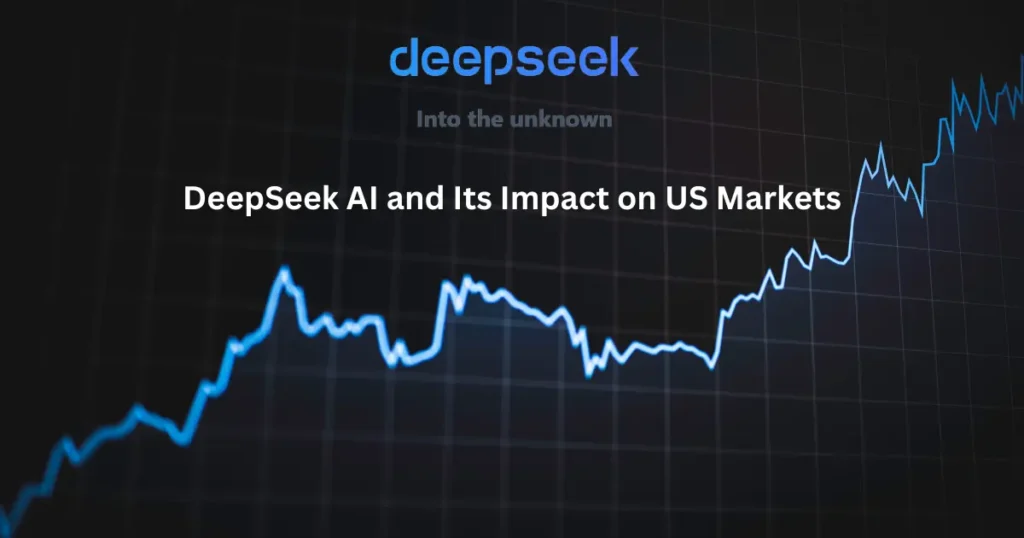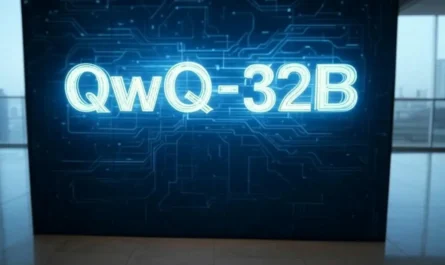The rise of DeepSeek AI, a leading Chinese artificial intelligence firm, has sent ripples through global markets, particularly influencing US tech giants like Nvidia (NVDA) and Broadcom (AVGO). As investors scramble to understand its implications, this article dives into DeepSeek’s market effects, FAQs, and its role in the AI arms race.
What Is DeepSeek AI?
DeepSeek AI, founded by tech entrepreneur Liang Wenfeng, is a Beijing-based company specializing in enterprise-grade AI solutions. Unlike consumer-focused models like ChatGPT, DeepSeek targets industries such as healthcare, finance, and logistics with tailored tools for data analysis, automation, and predictive modeling. Its proprietary model, Janus Pro 7B, rivals OpenAI’s GPT-4 in efficiency, sparking debates about DeepSeek vs ChatGPT dominance.
How DeepSeek AI Affects US Markets

1. Nvidia (NVDA Stock) and the Semiconductor Boom
Nvidia’s GPUs are the backbone of AI infrastructure, and DeepSeek’s rapid expansion has driven demand for NVDA’s data center chips. Despite recent dips in NVDA stock price, analysts tie its long-term growth to AI adoption in China. However, US-China trade tensions and export restrictions could pose risks.
2. Broadcom (AVGO) and Networking Solutions
Broadcom, a key supplier of AI networking hardware, benefits from DeepSeek’s need for high-speed data processing. Broadcom stock has surged alongside AI-driven demand, reflecting the Jevons Paradox—where efficient AI increases, rather than decreases, resource consumption.
3. Indices Like NASDAQ and S&P 500
The NASDAQ Composite and S&P 500 have seen volatility as AI stocks fluctuate. DeepSeek’s progress underscores China’s competitive edge, influencing investor sentiment in tech-heavy indices.
FAQs About DeepSeek AI and US Markets
1. Is DeepSeek Publicly Traded?
No. DeepSeek remains private, so there’s no DeepSeek stock symbol or DeepSeek stock price yet. However, its partnerships with firms like TSMC (TSM) indirectly impact semiconductor stocks.
2. Why Is Nvidia Down?
While NVDA stock dipped recently due to market corrections and export concerns, its AI leadership keeps analysts bullish. DeepSeek’s growth could stabilize demand despite geopolitical headwinds.
3. How Does Chinese AI Threaten US Companies?
China’s push for AI sovereignty, led by DeepSeek and others, challenges US dominance. This rivalry affects tariffs, supply chains, and stock market futures, especially in tech sectors.
4. What Is the Jevons Paradox in AI?
The paradox explains why efficient AI (like DeepSeek’s models) boosts demand for resources like energy and semiconductors—benefiting companies like Nvidia and Constellation Energy (CEG).
5. Will DeepSeek Impact the S&P 500?
Indirectly. As AI adoption grows, S&P 500 tech components (e.g., Apple, Microsoft) may face competition, but broader market trends depend on regulation and global AI adoption rates.
DeepSeek vs ChatGPT: A Technical Showdown
While ChatGPT leads in consumer applications, DeepSeek’s Janus Pro 7B excels in enterprise customization. This specialization positions it as a niche competitor, potentially diverting B2B clients from US counterparts.
Key Stocks to Watch
- Nvidia (NVDA): AI chip demand remains critical.
- Broadcom (AVGO): Networking infrastructure plays.
- TSMC (TSM): Supplies chips for DeepSeek’s hardware.
- Nasdaq Futures: Track tech sector sentiment.
Conclusion: The Future of AI and Markets
DeepSeek AI exemplifies China’s strategic push into AI, creating both opportunities and challenges for US markets. Investors should monitor NVDA premarket trends, geopolitical policies, and AI adoption rates to navigate this evolving landscape.
Stay updated with CNBC, MarketWatch, and Seeking Alpha for real-time insights into how Chinese AI shapes global markets.
Also Read:DeepSeek vs Google Gemini




